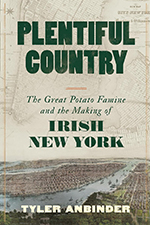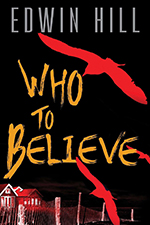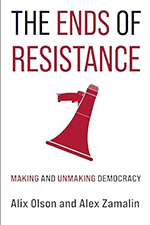“You Just Have to Read This…”: Books by Wesleyan Authors Anbinder ’84, Hill ’93, and Olson ’97

In this continuing series, we review alumni books and offer a selection for those in search of knowledge, insight, and inspiration. The volumes, sent to us by alumni, are forwarded to Olin Memorial Library as donations to the University’s collection and made available to the Wesleyan community.

Tyler Anbinder ’84, Plentiful Country: The Great Potato Famine and the Making of Irish New York (Little, Brown and Company)
In 1845, a fungus began to destroy Ireland’s potato crop, triggering a famine that would kill one million Irish men, women, and children—and drive over one million more to flee for America. By 1855, roughly a third of all adults living in Manhattan were immigrants who had escaped the hunger in Ireland. These so-called “Famine Irish” were the forebears of four U.S. presidents (including Joe Biden), yet when they arrived in America they were consigned to the lowest-paying jobs and subjected to discrimination and ridicule by their new countrymen. Even today, the popular perception of these immigrants is one of destitution and despair.
But when we let the Famine Irish narrate their own stories, they paint a far different picture. Drawing on newly available records and a 10-year research initiative, Anbinder reclaims the narratives of the refugees who settled in New York City and helped reshape the entire nation. Plentiful Country combines storytelling and scholarship to present the Famine generation’s individual and collective tales of struggle, perseverance, and triumph for the first time.
Tyler Anbinder is an emeritus professor of history at George Washington University, where he taught courses on the history of American immigration and the American Civil War era. He is the author of three award-winning books and of numerous articles, and he has won three prestigious research grants from the National Endowment for the Humanities.

Edwin Hill ’93, Who to Believe (Kensington)
The small, coastal town of Monreith, Massachusetts, appears to be the perfect slice of suburban paradise, where days are as predictable as the tide. But when popular restaurateur Laurel Thibodeau is found brutally murdered in her own home, this quiet community becomes a hotbed of suspicion and paranoia.
No stranger to confessions, Police Chief Max Barbosa has heard plenty of suspect theories, as has his longtime friend Georgia Fitzhugh, the Unitarian minister. For Farley Drake, the psychiatrist to many of Monreith’s well-to-do neighbors, secrets and confessions are part of the job. Rumors continue to fly and tensions between friends twist tighter and tighter as secrets are revealed. The sense of claustrophobia comes to a head the night of Alice Stone’s 40th birthday party, when another member of the community is murdered. As jealousy, revenge, adultery, and greed converge, the question becomes not who among these friends might be capable of such a thing, but—who isn’t? Maybe everyone in Monreith has something to hide.
Edwin Hill is an award-winning author of critically-acclaimed domestic suspense novels. Formerly the vice president and editorial director for Bedford/St. Martin’s (Macmillan), he now teaches at Emerson College and has written for the LA Review of Books, The Life Sentence, Publishers Weekly, and Ellery Queen Mystery Magazine. He lives in Roslindale, Massachusetts with his partner Michael and their Labrador, Edith Ann.

Alix Olson ’97 and Alex Zamalin, The Ends of Resistance: Making and Unmaking Democracy (Columbia University Press)
Since the rise of right-wing authoritarians worldwide, we have been told to “resist”: by voting for Democrats, putting up yard signs, buying the right products, etc. But this kind of resistance looks surprisingly like restoring the status quo. How was “resistance” diluted, and where can we find alternative forms of resistance for present and future struggles?
Elites have domesticated and coopted some once-radical concepts and practices into “restorative resistance” that bolsters support for an unjust social order while marginalizing, racializing, and criminalizing many others. Alix Olson and Alex Zamalin offer a clear-eyed, critical account of how neoliberalism has redefined resistance to thwart social movements and consolidate power. They argue that true resistance to racial neoliberalism must instead be deeply anti-restorative. This “unruly world-building”—exemplified by Occupy Wall Street, the Movement for Black Lives, Indigenous activism at Standing Rock, and more—pushes us to live, think, and dream beyond profit maximization, democratic civility, and individual freedom. Powerfully and accessibly written with manifesto-like urgency, The Ends of Resistance shows how marginalized voices and social movements deepen our thinking for confronting power.
Alix Olson is an assistant professor of women’s, gender, and sexuality studies at Emory University’s Oxford College. Before her academic career, she toured internationally as a spoken word artist. Olson is the editor of Word Warriors: 35 Women Leaders in the Spoken Word Revolution (2007) and is a widely published poet.

